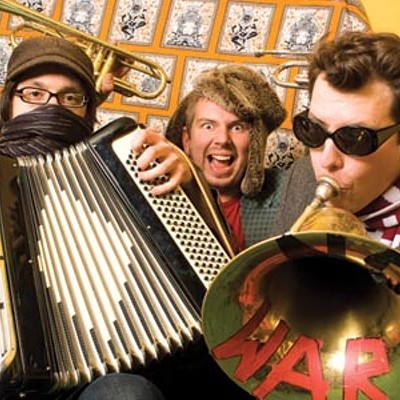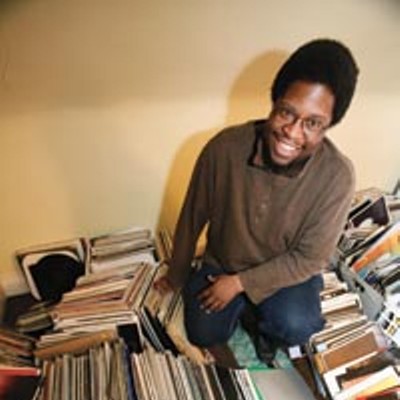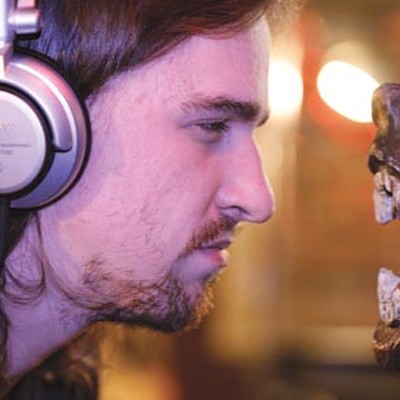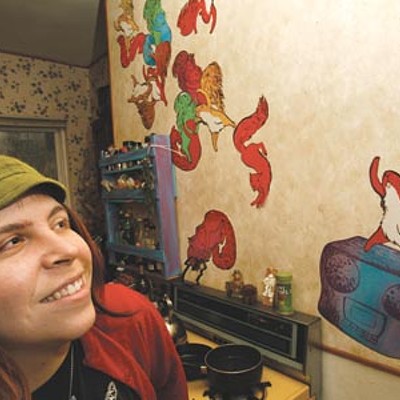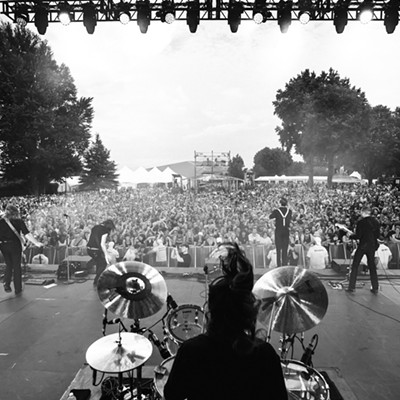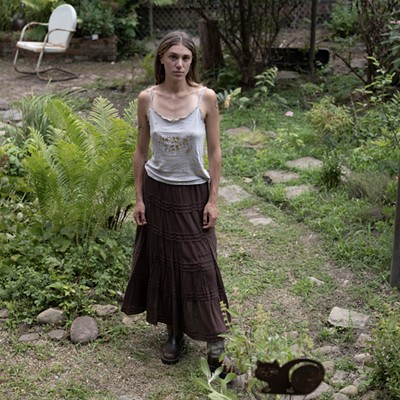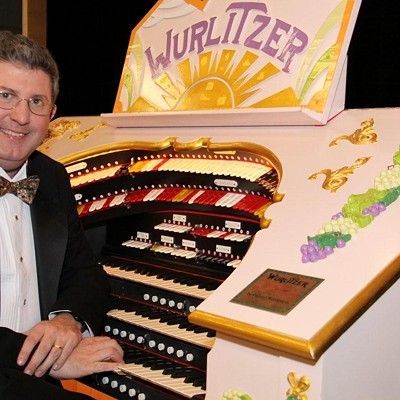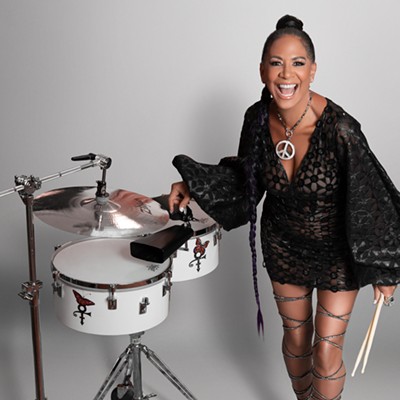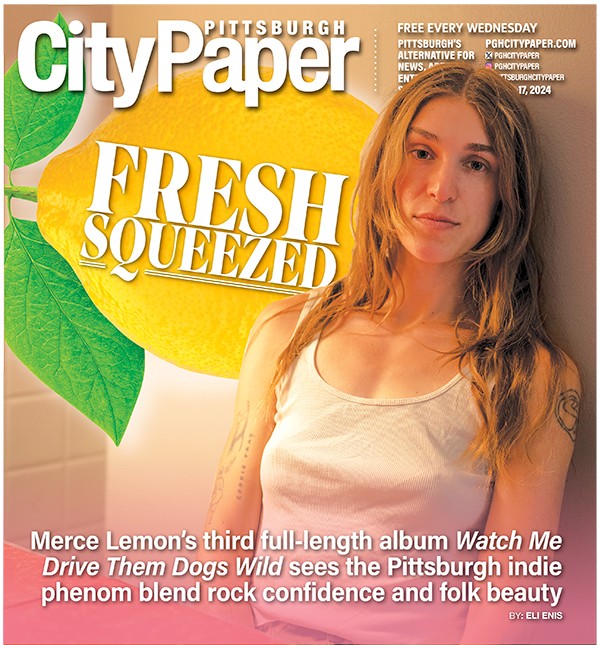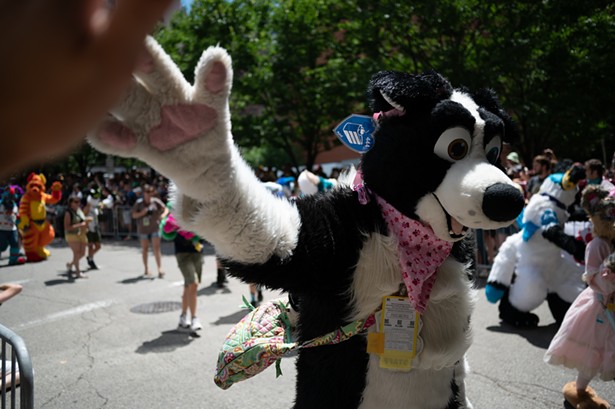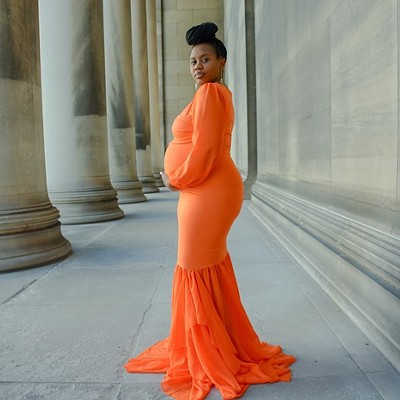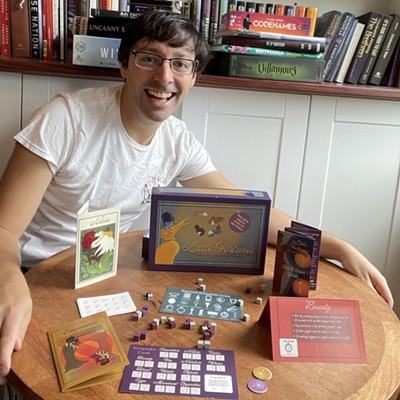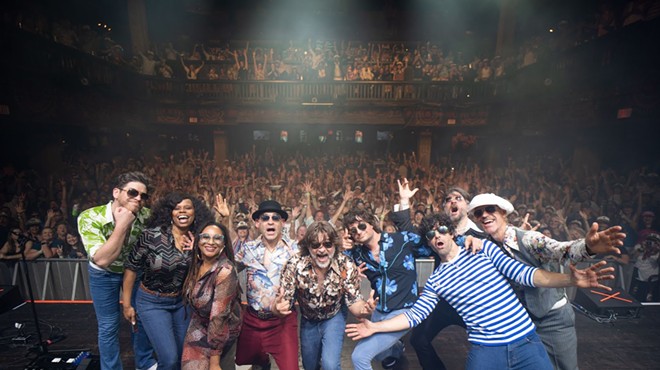Original man DJ Shine-O-Mite (a.k.a. Born Shamir Allah) broke mad ground in Pittsburgh. With rap group RXC, he helped form Theraputix, one of the city's first regular showcases for local hip hop. He was one of the first ... if not the first ... area DJs to have an all-classic/retro-soul night (SoulPatrol.com should get the official credit) with his Cool-Out series at the Shadow Lounge. And he set off custom-made T-shirts in Pittsburgh, with brilliantly colored, radical-painted designs, when the similar Myskeen fashion line thought it had that chamber on lock.
With RXC, he's brought the Block Party series to the Shadow Lounge, and Deli Style to Pittsburgh Deli Company. But most remember Shine-O-Mite as your friendly neighborhood vinyl dealer out of East Liberty's 720 Records.
Shine-O-Mite on the Deli:
I came up with Deli Style because it's based on deli-style sandwiches. It has a variety of different cold-cut meats on it, and we wanna come with the cold cuts. Plus it's at the Deli. Personally, I like spinning there because it's not a stage. It's flat, so it seems more organic, like I'm right on the dance floor. But that has some technical issues. People be trying to electric slide, or a big-bodied woman who tends to be heavy-footed making my records skip, so I got to put 50 to 75 cents on my needle, to keep it from jumping around.
... on 720 Records
I been part of 720 Records since it was in Oakland, which was like '98. It's a hub for networking and it serves as a museum of sorts, and I was kinda like the curator. A person who has a certain appreciation for music will embrace vinyl, so you got those people who come just like people who are art collectors come ... to look at art from a certain perspective ... even though the museum is open to everyone. When youth come home from school ... the Peabody High School kids ... I would purposely open the door and blast jams so they would come in. Once they come in, I flip the record to some other stuff they haven't heard before. I expanded their knowledge base. I don't know if they carried it home with them, but I'm sure if they see some DJ on TV like Jazzy Jeff scratching, it's no longer taboo to them.
... on the emergence of soul nights
The Cool-Out was the brainchild of being amongst a bunch of crate diggers like O-Ab and O-yo and Outtareach. Everybody had new records. I didn't. If I wasn't the first to have a classic soul night, then I was the first-and-a-half. Next thing you know, everybody has a soul night, and all of a sudden everybody is official because they go to The Attic or they go to Jerry's?
It's music for everybody, though. It's not like George Benson and Ahmad Jamal made those records exclusively for me to break them out in the '90s. However, if people didn't have these nights now, then there would be a population of people who wouldn't know about these songs. The predominant amount of soul nights and retro black music is being played by white DJs, but the venues are not what we would call where the brothers and sisters are at, do they really wanna hear that?
... on the DJ's responsibility
Our people are too influenced musically by media, by television, by mainstream radio, period. It's like somebody is defining for you what to jam to, when that's the DJ's responsibility. We're so passionate about the music that all we do is dig for music and think about you, the crowd. We thinkin', "They're gonna feel this." My sole responsibility is to make you dance. I don't care if you're doing the running man: If I got 150 people on the dance floor just doing the side-step, that's moving the crowd.
... on the dance scene
Women don't wanna dance no more ... women wanna dance with other women. What happened to women and men dancing with each other? But it's not only about women dancing with women, because you couldn't dance with a woman to "Scenario." Remember when "Scenario" came on in the '90s, and a bunch of dudes would get in a circle and start doing the East Coast stomp?
There is a disconnect between men and women in 2006 and that's seen on the dance floor. Music is supposed to bring us together, not separate us. And it sometimes come from men not knowing how to handle themselves appropriately around women, and women not knowing how to appropriately conduct themselves around men on the dance floor.


